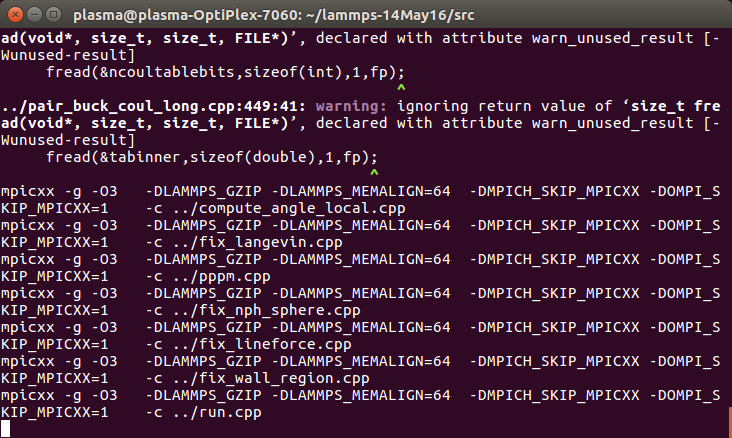


Mpi On Ubuntu Code Using C
It is open source and available via e.g. gfortran, the GNU compiler. Then we discuss how to compile the source code.A possible list of prerequisites (tested for Ubuntu 19.10) is:Ubuntu or similar Ubuntu-based distributions The advantage of using NS3 instead of NS2 is that we can code using c++, while the prior one is based on TCL.Zero-point renormalization of the band gap and temperature-dependent band gapsYAML-based test suite Python tools and APIThe prerequisites are first discussed qualitatively, because the installation mayDepend on the linux distribution. On Linux Mint or Ubuntu, run the command:Tutorial on polarization and finite electric fieldsInstallation of NS3 on Ubuntu NS3 is a discrete event network simulator, which is widely use for the research in the network domain. Installing the OpenMPI packages.
-with-mpi="yes" becomes with_mpi="yes".The LINALG_LIBS variable was explicitly set for this linux distrubution.The directory was extracted via dpkg -L liblapack-dev and dpkg -L libblas-dev.When fine tuning variables and flags for a particular linux distribution, it is advised toTake a look at the template file ~abinit/doc/build/config-template.ac9.For example, the setting of LINALG_LIBS in this template file is givenBy the line #LINALG_LIBS="-L/usr/local/lib -llapack -lblas".More specialized libraries might be harder to detect.For example, the following section was added to the config file to detect customized FFT and XML libraries.These libraries are available via apt ( libfftw3-devand libxml2-dev).The directories for the corresponding library and header files can be found by using dpkg -L And other flags can be extracted from the ~abinit/doc/build/config-template. mkl from Intel (or you might try the libmkl-full-dev package).HDF5, NetCDF and NetCDF-Fortran, libraries to write/read binary files in netcdf4 format.These libraries are available via the libhdf5-dev, libnetcdf-dev and libnetcdff-dev packages from apt.For parallel IO, the libpnetcdf-dev is required.LIBXC, a library containing exchange-correlation potentials, from the libxc-dev package.Note that it is also possible to generate these libraries via the ABINIT fallbacks:# MPI settings with_mpi = "yes" enable_mpi_io = "yes" # linear algebra settings with_linalg_flavor = "netlib" LINALG_LIBS = "-L/usr/lib/x86_64-linux-gnu -llapack -lblas" # mandatory libraries with_libxc = "yes" with_hdf5 = "yes" with_netcdf = "yes" with_netcdf_fortran = "yes"One uses ‘-‘ when typing a flag but ‘_’ inside the config file, e.g. MPICH from apt ( libmpich-dev package) or Depending on your distribution, you might need to manually add the mpi-default-dev package,A fallback (see next point) is available inside ABINIT (basic version of lapack),But you might want to install a math library yourself, especially for parallel computations: Open MPI from apt ( libopenmpi-dev package) or This is a commercial compiler, slightly more complicatedTo use but more optimized for intel architecture.A MPI library installed (If you want to benefit from parallelism recommended).


 0 kommentar(er)
0 kommentar(er)
